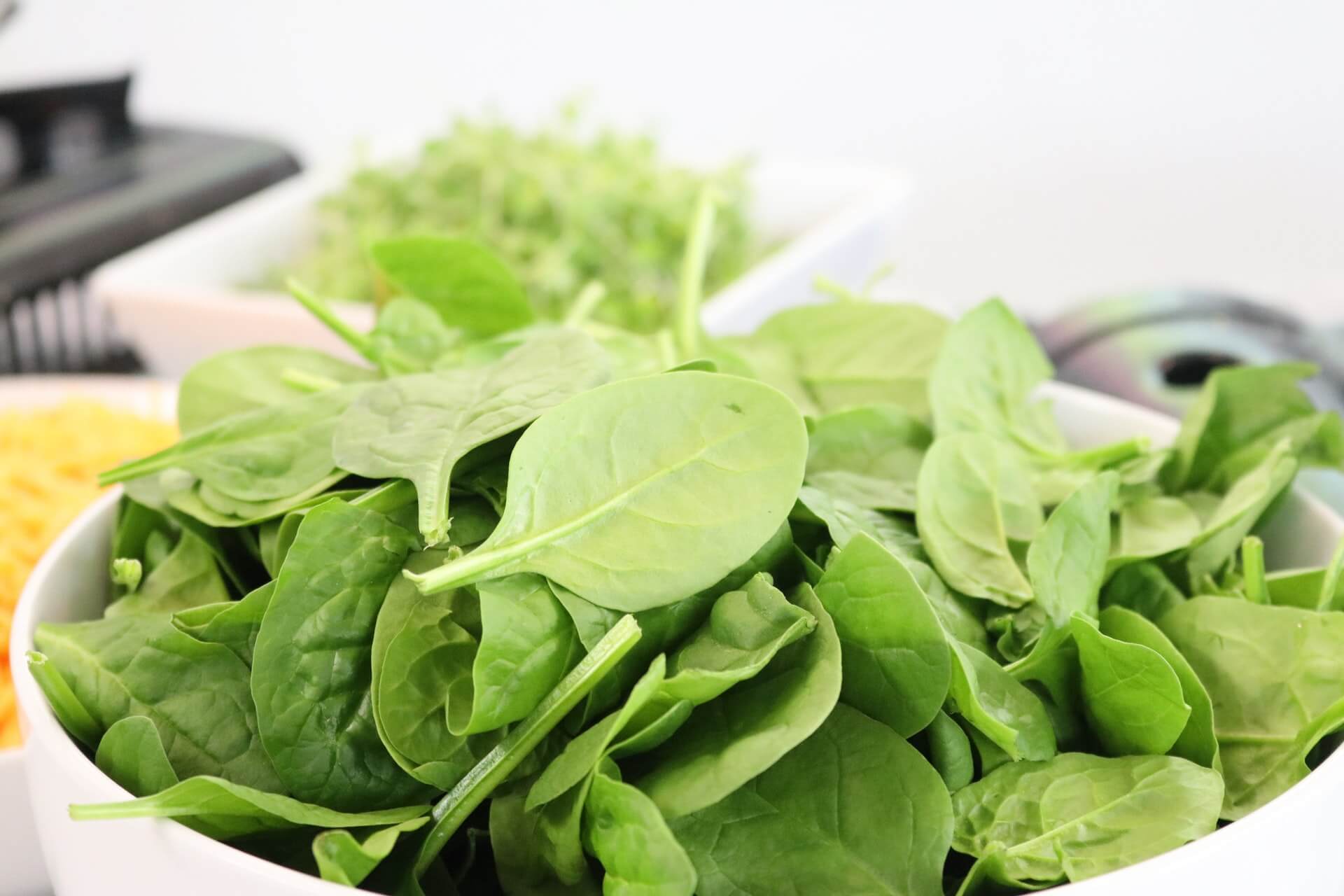Getting the right amount of protein on keto is vital for optimal health. Protein plays important roles, from maintaining muscle mass to energy production to immune function, among others (1).
However, a common concern in those who follow a keto diet is the idea that too much protein can kick them out of ketosis.
This article covers everything you should know about keto and protein — its functions, recommended amounts, and when increasing it becomes necessary.
The Role of Protein on Keto
Dietary protein is essential for people doing a low-carb diet to help increase their satiety, aside from fat. Research shows that foods with high protein content can regulate food intake, which allows you to lose weight and keep it off (2).
In several tightly controlled feeding studies, it was shown that energy-restricted diets that involved a high protein intake resulted in greater weight loss and fat mass loss. Furthermore, lean muscle mass was preserved (3).
In other words, protein favors weight loss while protecting your lean muscle, especially when you’re on a weight loss diet such as keto.
For those leading an active lifestyle — such as including exercise in your daily routine — protein promotes post-exercise recovery, immune function, and the growth of lean body mass (4).
How Much Protein Should I Eat on Keto?
A good protein intake is between 0.73 to 1 gram per pound of body weight (or 1.6 to 2.2 grams of protein per kilogram of body weight), according to the National Academy of Sports Medicine (5).
In addition, people who are are athletes or exercising heavily should consume more protein, about 1 to 1.5 grams per pound of body weight (or 2.2 to 3.4 grams of protein per kilogram of body weight) (5).
Regardless of the dietary strategy for losing weight, protein is one macronutrient that should not be taken for granted. You can also use a keto macro calculator to get your exact protein value, in addition to your fat and carbs.
Now that you know how many grams of protein on keto to consume, you may be wondering whether there’s such a thing as eating too much of it — and if it can knock you out of ketosis.
Will Too Much Protein Kick You Out of Ketosis?
The short answer is that some people on the keto diet can eat more protein without noticing any change in their ketone levels. Before making a prediction on your personal tolerance, the best way is to check your blood glucose and ketone levels after eating a meal with a substantial amount of protein. Like 30 grams of protein (that would look like a 4 oz chicken steak), for example.
You may have heard the term gluconeogenesis, a metabolic process in which glucose is created from non-carbohydrate sources, such as lactate, amino acids from protein, and glycerol from fat metabolism (6).
Some dieters are worried that eating too much protein on keto will interfere with ketosis due to gluconeogenesis. Because, on the keto diet, ketones become your primary source of fuel — and not glucose.
However, if gluconeogenesis doesn’t exist, we wouldn’t survive because certain tissues in our bodies rely only on glucose, such as your red blood cells or erythrocytes (7).
In other words, gluconeogenesis is vital and helps you thrive while you’re in nutritional ketosis.
According to one review, protein has a minimal effect on blood glucose levels in people with adequate insulin. On the other hand, those with insulin insufficiency will likely have an elevated blood glucose response (8). This points out the importance of insulin for protein to be metabolized.
If you have diabetes and are taking insulin, it’s vital to keep this possible blood sugar response in mind when eating a high-protein meal. At the same time, be sure to test how your body reacts to certain amounts of protein through blood glucose and ketone readings.
When Do I Need to Increase My Protein Intake on Keto?
Eating more protein may be necessary for the following situations in your life:
You’re Dealing With an Illness
Getting adequate protein is especially important when your body is undergoing stress, such as an illness or an infection. Being sick increases your metabolism, which makes a nutrient-dense diet (that includes protein) beneficial for speeding up recovery (9).
Evidence from randomized, controlled studies show that providing ill patients with adequate protein results in a lower mortality and improves their quality of life (10).
Older Adults
Sarcopenia or muscle loss due to advancing adult age affects people starting in their 4th decade of life (ages 30-39). As you reach the 8th decade of your life (ages 70-79), you lose about 50% of your muscle mass (11).
What’s also interesting is the fact that poor protein intake is an important contributor to sarcopenia, which ultimately leads to a loss of strength (11).
This is why aging bodies need more protein to preserve muscle mass and strength, on top of other essential functions. Just because age-related muscle loss is a natural part of the aging process, doesn’t mean you’re helpless.
By paying attention to your protein intake on keto, you can protect your muscle and avoid the consequences of sarcopenia, such as disability and increased mortality.
You Have a Weight Loss Goal
Eating more protein allows you to lose weight naturally — even more so on the keto diet because you’re restricting carbs (which cause your glucose and insulin levels to rise).
Here’s how increasing protein can help with weight loss:
Protein has a higher thermic effect than fat and carbohydrates. This increases your energy expenditure, allowing you to burn more calories even during sleep (12).
Building Muscle Mass
Building muscle on keto is possible, and it comes with many benefits, such as fat loss, improvement in your mood, increased self-confidence, and overall health and wellness (13).
Going over protein on keto may boost your body’s recovery from resistance training activities (lifting weights and bodyweight exercises) and stimulates muscle protein synthesis.
Taking a protein supplement might be necessary for people who are unable to meet their dietary protein needs through food alone. In that case, consider looking for a high-quality whey protein powder.
To Help Control Your Cravings
Another way that protein reduces your calorie intake is that you’ll feel less hungry due to its satiating effect. This is important if you’re trying to fight cravings during the day or late at night.
Unhealthy carb cravings can happen anytime on the keto diet, even when you’re adapted. Increasing your protein intake — among other things like staying hydrated, controlling your stress levels, and proper meal planning — will help to prevent or stop cravings when they strike.
How to Get More Protein on Keto
The best way to ensure that you’re consuming enough protein is to track it. Macronutrient counting (or counting macros) enables you to figure out where you’re getting your calories. Are you getting enough from protein-rich foods? Depending on your tracking, optimize for protein through whole foods like eggs, salmon, meat, poultry, fish, seafood, and nuts.
If you’re following a vegetarian keto diet, make sure you know which plant foods can provide protein in your diet. Almonds, low-carb nut butters, avocados, and chia seeds are all good plant-based keto options.
In addition, consider taking a protein smoothie after your workouts or choose protein-rich snacks to keep you full between meals. As much as possible, stay away from foods containing added sugars and are high in carbohydrates.
Keto Protein Sources to Limit or Avoid
While protein is absolutely necessary for optimal health and performance, certain foods with protein are best avoided or consumed only when you have no other choices available — for example, you lack time for meal prep. Avoid or limit the following:
- Packaged foods with added sugars (be sure to check the nutrition label)
- Protein snacks with too many carbs
- Deli meat and canned foods (sausages, lunch meats, chorizo, etc.)
- Fast food (burger patties, for example)
Whole foods are always better, so strive to consume them more often. Prepping your meals in advance will ensure you eat whole meals and meet your weight loss and body composition goals on keto.
The Bottom Line
Prioritizing protein for keto (and not just healthy fat) helps you lose weight, maintain and build muscle regardless of your age, recover from your workouts faster, and improve other aspects of your health and wellness.
Contrary to popular belief, eating too much protein on keto does not necessarily kick you out of ketosis. Gluconeogenesis is vital on a very low-carb diet to ensure that other cells in your body get glucose, which makes staying in ketosis possible. And more importantly, you should your body’s response to certain amounts of protein, to know if your blood glucose rises or your ketone levels decrease. Remember that everyone is unique.
References:
- Carbone J, Pasiakos S. Dietary Protein and Muscle Mass: Translating Science to Application and Health Benefit. 2019 May 22
- Morell P, Fizsman S. Revisiting the role of protein-induced satiation and satiety. 2017 July
- Leidy H, Clifton P, Astrup A et al. The role of protein in weight loss and maintenance. 2015 April 29
- Kreider R, Campbell B. Protein for exercise and recovery. 2009 June
- Dieter B. Protein and Weight Loss: How Much Protein Do You Need to Eat Per Day?
- ScienceDirect. Gluconeogenesis
- Bacha T, Luz M, Da Poian A et al. Dynamic Adaptation of Nutrient Utilization in Humans
- Franz M. Protein: metabolism and effect on blood glucose levels. 1997 November-December
- Fischetti M. Fact or Fiction?: Feed a Cold, Starve a Fever. 2014 January 03
- Waele E, Jakubowski J, Stocker R et al. Review of evolution and current status of protein requirements and provision in acute illness and critical care. 2021 May
- Walston J. Sarcopenia in older adults. 2014 June 23
- Pesta D, Samuel V. A high-protein diet for reducing body fat: mechanisms and possible caveats. 2014 November 19
- Tsutsumi T, Don B, Zaichkowsky L et al. Physical fitness and psychological benefits of strength training in community dwelling older adults. 1997 November



